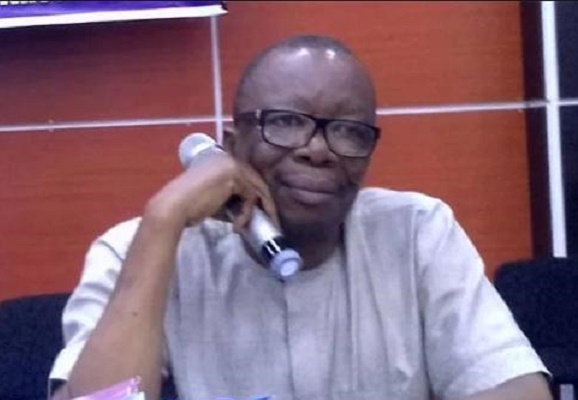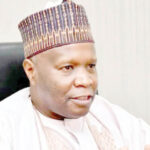Millions of Nigerians heaved a sigh of relief last Friday over the news that the eight-month-long strike by the Academic Staff Union of Universities (ASUU) had ended. The termination of the strike was the main resolution of a marathon meeting in Abuja by its National Executive Council (NEC), which lasted from Thursday night to Friday morning.
According to its President, Professor Emmanuel Osodeke, the decision to end the strike was taken in response to appeals by well-meaning Nigerians, President Muhammadu Buhari, the intervention of the Speaker of the House of Representatives, Femi Gbajabiamila and the need to comply with the ruling of the Appeal court. “Consequently, all members of ASUU are hereby directed to resume all services hitherto withdrawn with effect from 12.01 on Friday, 14th October 2022”, Osodeke had said. By implication, therefore, normal academic activities in the country’s federal government-owned universities shall resume from Monday, October 17th, 2022.
I’ll appeal judgment to reaffirm my victory — Binani
Reflections on ‘vote trading’ in our elections
Professor Osodeke had, however, noted that while ASUU was ending the strike, the union was doing so even as the topical issues had not been satisfactorily resolved. This implies that the substantive issues that spawned the strike in the first place, constitute unfinished business, which could resurrect any time in the future.
Meanwhile, in its response to the development through an official statement, the Ministry of Labour and Employment commended the wide spectrum of Nigerians who intervened to bring the crisis to an end. The statement also promised that with the steps the federal government is taking, Nigerian students will be saved the unpalatable experience of intermittent, prolonged industrial actions in future. On his own part, the Speaker of the House of Representatives, Femi Gbajabiamila called on stakeholders in the country’s tertiary education sector to ensure that industrial strike action by academics in the universities will never happen again.
According to Gbajabiamila “It is regrettable that this strike action happened in the first place. It is even more unfortunate that it lasted as long as it did. We must make sure it never happens again. Our public universities should be citadels of learning and innovation, where young people discover themselves and reach for the stars. That is not now the case. Changing that requires that we admit certain harsh truths and take radical action”.
Meanwhile, the preponderance of reactions from members of the public commends ASUU for calling off the strike and allowing regular academic activities to proceed. The consensus is that by ending the strike action, ASUU did not go down with its head bowed in defeat, but has applied the wisdom of not throwing the baby away with the bath water.
With the strike action now past, the country is faced with the significant challenge of damage control and bracing up for the future. To put it in proper context, is to view the situation with grave concern. In one vein, is the challenge of catching up by the impacted universities along with their students and other stakeholders, as the scope of dislocation of academic programs and careers remains monumental.
From another angle, is the smoldering grievances of ASUU, which remain to spring up in the future to demand fresh attention since they have been left in abeyance as unfinished business.
As things stand, it would have better served public interest if the cessation of the strike had been matched with specific remediation initiatives by the government. For whatever took ASUU to strike for eight long months out of the academic season of nine months needs to be seen from a more committal position by the government. However, this is not to state that the government did not offer ASUU any concessions in the series of bargaining sessions even during the strike action.
It is on record that with the leverage of the strike action ASUU earned a few concessions even if such were not up to the union’s expectations. Among the concessions, which were won by the union were the adjustment by the government with respect to the imposition of IPPIS on ASUU. Accordingly, the federal government shall modify the Integrated Personnel and Payroll Information System (IPPIS) to accommodate the peculiarities of the University Transparency Accountability System (UTAS), a payroll system developed by ASUU for the payment of salaries and allowances of university lecturers and the Universities Peculiar Personnel Payroll System (UPPPS) developed by The Joint Action Committee of the Non-Academic Staff Union of Universities and the Senior Staff Association of Nigerian Universities.
Also on the card is the promise by the government to increase budgetary allocation for the improved funding of universities.
So far, whatever concession the government has seemingly offered ASUU lies largely in the terrain of mere promises, waiting for implementation. The situation now leaves the country waiting for the government to demonstrate its resolve to address the issues raised by ASUU, from the angle of tackling head on, the negative impact of the strike action, especially from the perspective of catching up with damage control and preventing future occurrences of strike actions in the academia. Also, with the promise of increase in the funding of universities, this translates to higher responsibilities for ASUU. During the strike, ASUU was accused of not holding the authorities of their varsities to account. They must take that concern seriously.

 Join Daily Trust WhatsApp Community For Quick Access To News and Happenings Around You.
Join Daily Trust WhatsApp Community For Quick Access To News and Happenings Around You.


